Politics through the Lens of Economics
Lecture 10: Political Agency Model
Masayuki Kudamatsu
6 December, 2017
Discussion Time
What evidence is needed
for the Legislative Bargaining Model to explain
Minimum-wage policy in South Korea?
Background information
Minimum-wage policy in South Korea
Introduced in 1988 ($0.50 per hour)
As of 2016, $5.80 per hour (similar to Israel and Poland)
Lower than Japan ($7.40) and most other OECD countries
In 2015, 12% of workers received the minimum wage or lower
(Source: Korea Labor Institute)
(Sources: Bloomberg, The Economist)
Background information
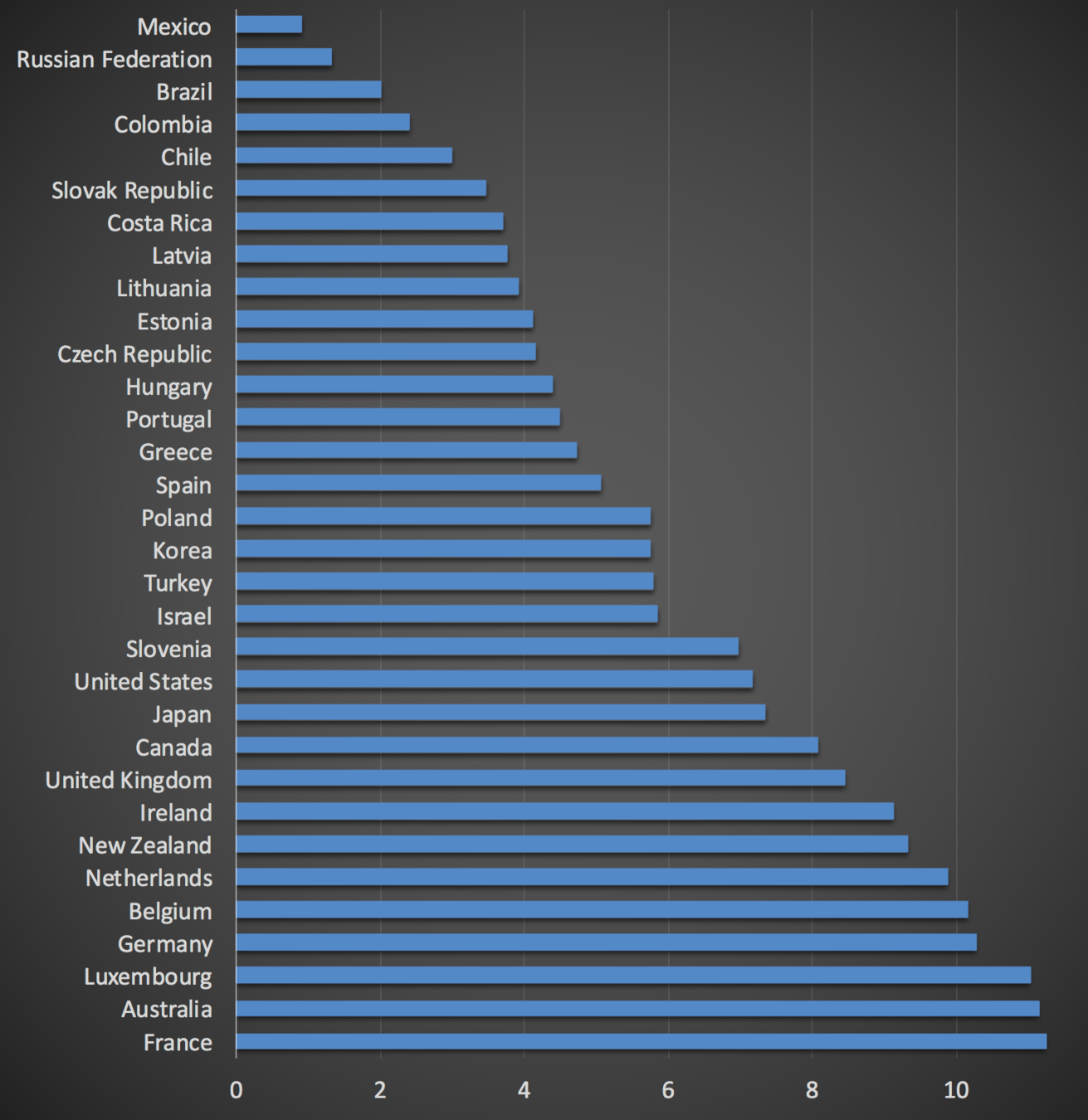
Minimum wage across countries in 2016
US dollars (PPP) per hour
Source: OECD Stat
Background information
Minimum-wage policy in South Korea (cont.)
May 2017 Presidential Election
Every major candidate pledged a 10,000-won ($8.83) wage floor
Winner, Moon Jae-in, promised to reach the target by 2020
Next year it'll be 7530 won ($6.65), an increase by 16.4%
Trade Unions support the policy
A survey shows
90% of small companies prefer a rise of below 5%
55% say they will be bankrupt if the policy goes ahead
(Sources: Bloomberg, The Economist)
Basic economics of minimum wage
Wage
# of employees
Supply
Demand
Equilibrium
Equilibrium
Background information
Basic economics of minimum wage
Wage
# of employees
Supply
Demand
Equilibrium
Equilibrium
Minimum wage
Minimum wage does not have any impact
Background information
Basic economics of minimum wage
Wage
# of employees
Supply
Demand
Equilibrium
Minimum wage
Minimum wage reduces employment
Discussion Time
What evidence do we need to say
the legislative bargaining model (assumptions / predictions)
explains South Korea's minimum wage policy?
Aim to come up with a wrong answer

Motivation for today (& next week)
Conflict of interest
between
citizens and politicians
Examples
Corruption of politicians
Common interest policies requiring politicians' costly effort
e.g. Disaster relief
Today's Road Map

Evidence on citizens' voting behaviour
Political agency model
Evidence on politicians' behaviour
Model ingredient #1: Players
Citizens
Act as one person:
any conflict of interest among themselves is assumed away
Politicians
Incumbent
(chooses a policy in period 1 and, if re-elected, in period 2)
Opposition candidate
(chooses a policy in period 2 if defeating the incumbent)
Model ingredient #2: Policies
Provide public goods
Benefit politician rather than citizens
Preferred by citizens
Use the fixed amount of government revenue to:
Put public money into pocket
Target-spending on interest groups
Pursue his/her own ideological agenda
Model ingredient #3: Politician type
Prefer a policy that benefits themselves
Congruent politicians
Prefer a policy that citizens prefer (i.e. public good provision)
Dissonant politicians
Model ingredient #4: Information
Citizens do not know each politician's type
Expect a politician to be congruent with probability P
Citizens observe policy choice in period 1
e.g. through mass media
Model ingredient #5: Timing of Events
Step 1: Period 1 Policy-making
Step 2: Election
The incumbent chooses a policy
Citizens vote for the incumbent or for the opposition
Step 3: Period 2 Policy-making
Winner of the election chooses a policy
cf. Results are the same with multiple periods
Period 2 politician's optimization
Congruent politician
Provide public goods
Dissonant politician
Benefit himself / herself
Citizens want a congruent politician to be in office in period 2
Citizens' optimization at the election
Vote for the candidate who is more likely to be congruent
Probability of being congruent
Incumbent
Opposition
Probability that incumbent is congruent
Congruent
Dissonant
P
1 - P
Citizens' initial belief
Probability that incumbent is congruent
Congruent
Dissonant
P
1 - P
Citizens' initial belief
public good
Congruent politicians always provide public good
Incumbent's policy choice
Probability that incumbent is congruent
Congruent
Dissonant
P
1 - P
Citizens' initial belief
public good
Incumbent's policy choice
Q
1 - Q
public good
Suppose the dissonant incumbent
provides public good with probability Q
Later we will derive Q as the dissonant politician's optimal behaviour
Probability that incumbent is congruent
Congruent
Dissonant
P
1 - P
Citizens' initial belief
public good
Incumbent's policy choice
Q
1 - Q
public good
The dissonant incumbent
benefits himself with probability 1-Q
benefit himself
Congruent
Dissonant
P
1 - P
Citizens' initial belief
If public good is observed...
Congruent
P
Dissonant
(1 - P) * Q
public good
Q
1 - Q
public good
benefit himself
Citizens' updated belief
Probability that incumbent is congruent
Citizens' optimization at the election
Vote for the incumbent if public good was observed
Probability of being congruent
Incumbent
Opposition
Congruent
P
Dissonant
(1 - P) * Q
Citizens' updated belief
Congruent
Dissonant
P
1 - P
Citizens' initial belief
Dissonant
(1 - P) * (1 - Q)
Incumbent is dissonant for sure
public good
If no public good is observed
Q
1 - Q
public good
benefit himself
Citizens' updated belief
Probability that incumbent is congruent
Citizens' optimization at the election
Vote for the opposition if no public good was observed
Dissonant
(1 - P) * (1 - Q)
Incumbent is dissonant for sure
Citizens' updated belief
Probability of being congruent
Incumbent
Opposition
Period 1 congruent politician's optimization
Provide public good
Get re-elected and benefit from public good in both periods
Provide no public good
Get kicked out of office and no benefit from public good at all
Optimal behaviour: Provide public good
Period 1 dissonant politician's optimization
Provide public good
Get re-elected & benefit from period 2 policy
Provide no public good
Benefit from period 1 policy & get kicked out of office
Benefit from period 1 policy
Expectedperiod 2 benefit
0
Period 1 dissonant politician's optimization
Provide public good
Get re-elected & benefit from period 2 policy
Provide no public good
Benefit from period 1 policy & get kicked out of office
Benefit from period 1 policy
Expectedperiod 2 benefit
Provide public good
0
Period 1 dissonant politician's optimization
Provide public good
Get re-elected & benefit from period 2 policy
Provide no public good
Benefit from period 1 policy & get kicked out of office
Benefit from period 1 policy
Expectedperiod 2 benefit
Provide no public good
Provide public good
0
Period 1 dissonant politician's optimization
Benefit from period 1 policy
Expectedperiod 2 benefit
Provide no public good
Provide public good
0
Q
1 - Q
Probability:
Political Agency Model in a nutshell
Incumbent Politician type
Good
Bad
Cost of pleasing citizens
Low
High
Period 1 policy
Please citizens
Please citizens
Ignore citizens
Election
Re-elected
Re-elected
Kicked out
Period 2 policy
Please citizens
Ignore citizens
New politician type
Good
Bad
Please citizens
Ignore citizens
Good
Bad
Zero
Voters reward politicians for good behavior
Incumbent politician type
Good
Bad
Cost of pleasing citizens
Low
High
Period 1 policy
Please citizens
Please citizens
Ignore citizens
Election
Re-elected
Re-elected
Kicked out
Period 2 policy
Please citizens
Ignore citizens
Winning politician type
Good
Bad
Please citizens
Ignore citizens
Good
Bad
Zero
Political Agency Model's implication #1
Voters punish politicians for misbehaving
Incumbent politician type
Good
Bad
Cost of pleasing citizens
Low
High
Period 1 policy
Please citizens
Please citizens
Ignore citizens
Election
Re-elected
Re-elected
Kicked out
Period 2 policy
Please citizens
Ignore citizens
Winning politician type
Good
Bad
Please citizens
Ignore citizens
Good
Bad
Zero
Political Agency Model's implication #1
Re-election incentive disciplines the incumbent
Incumbent politician type
Good
Bad
Cost of pleasing citizens
Low
High
Period 1 policy
Please citizens
Please citizens
Ignore citizens
Election
Re-elected
Re-elected
Kicked out
Period 2 policy
Please citizens
Ignore citizens
Winning politician type
Good
Bad
Please citizens
Ignore citizens
Good
Bad
Zero
Political Agency Model's implication #2
Election improves the quality of policy-makers
Incumbent politician type
Good
Bad
Cost of pleasing citizens
Low
High
Period 1 policy
Please citizens
Please citizens
Ignore citizens
Election
Re-elected
Re-elected
Kicked out
Period 2 policy
Please citizens
Ignore citizens
Winning politician type
Good
Bad
Please citizens
Ignore citizens
Good
Bad
Zero
Political Agency Model's implication #3
Summary
Implications of Political Agency Model
Citizens observe
incumbent's performance
before election
Better-than-expected
performance
Re-election
of incumbent
Incumbent delivers
what citizens need
Today's Road Map

Evidence on citizens' voting behaviour
Political agency model
Evidence on politicians' behaviour
Implication of Political Agency Model
to be tested
Citizens observe
incumbent's performance
before election
Better-than-expected
performance
Re-election
of incumbent
Incumbent delivers
what citizens need
Testing ground: Mayors' corruption in Brazil
Mayor was given an apartment worth 600,000 real
cf. 1 US dollar = 2 to 4 Brazilian real
Example #1: Over-invoicing
Building 9km of roads
Cost is estimated to be 1,000,000 Brazilian real
Municipal govt paid 5,000,000 real to a firm with no experience
Another firm subcontracted for 1,800,000 real
Fiscal transfer from Ministry of Health: 321,700 real
Municipal govt used fake receipts worth 166,000 real
as the proof of purchasing medical equipments
Testing ground: Mayors' corruption in Brazil
Example #2: Diversion of public funds
cf. 1 US dollar = 2 to 4 Brazilian real
Construction of a sports complex
Bidding firms required to have 100,000+ real in capital
Only one firm qualifies, which gave kickbacks to mayor
Testing ground: Mayors' corruption in Brazil
Example #3: Illegal procurement
Random auditing of municipal govt expense
Starting from May 2003...
50-60 municipalities per month (out of 5,000+ in total)
randomly chosen for auditing by public lottery
Lottery: witnessed by citiznes, the press, and political parties
Image source: Foreign Policy (2015)

Random auditing of municipal govt expense
Starting from May 2003...
50-60 municipalities per month (out of 5,000+ in total)
randomly chosen for auditing by public lottery
10-15 auditors sent to each chosen municipality
Trained, well-paid, hired by competitive examination
Report is published to the press and on the Internet
Random auditing of municipal govt expense
By the way, the political reasons for randomization were:
Nobody could accuse the auditing agency
of picking their targets through political calculation.
It would discipline mayors even without being investigated
(the auditing agency's budget was limited)
according to Foreign Policy (2015)
October 2004
Municipal elections
376 municipalities
audited
300 municipalities
audited
Voters observe
mayor's corruption
before election
Voters don't observe
mayor's corruption
before election
Similar due to random assignment
Difference in
electoral outcomes
Impact of observing
mayor's corruption
=
Measurement of corruption
From the audit report, count # of violations
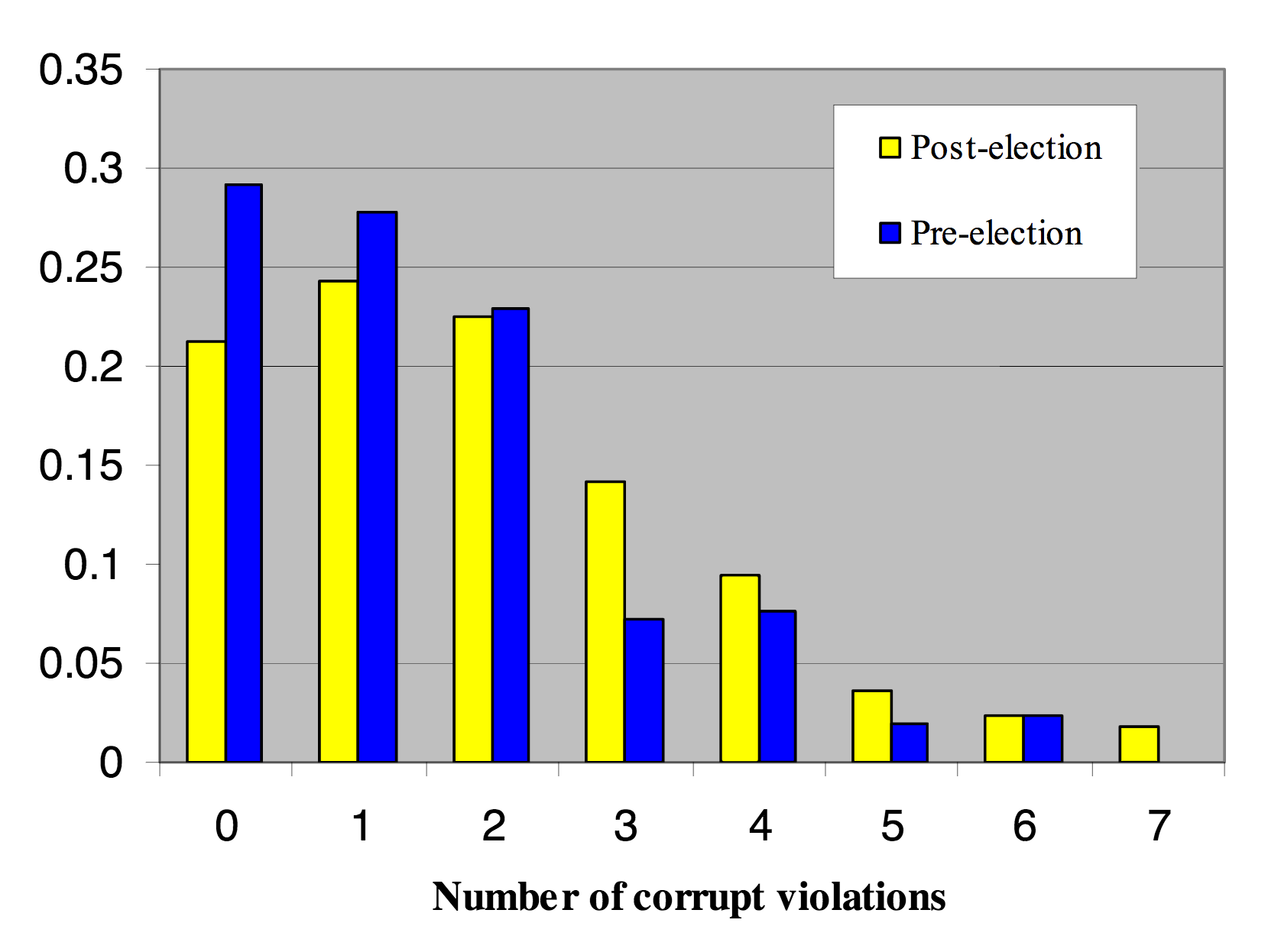
Source: Figure 1 of Ferraz and Finan (2008)
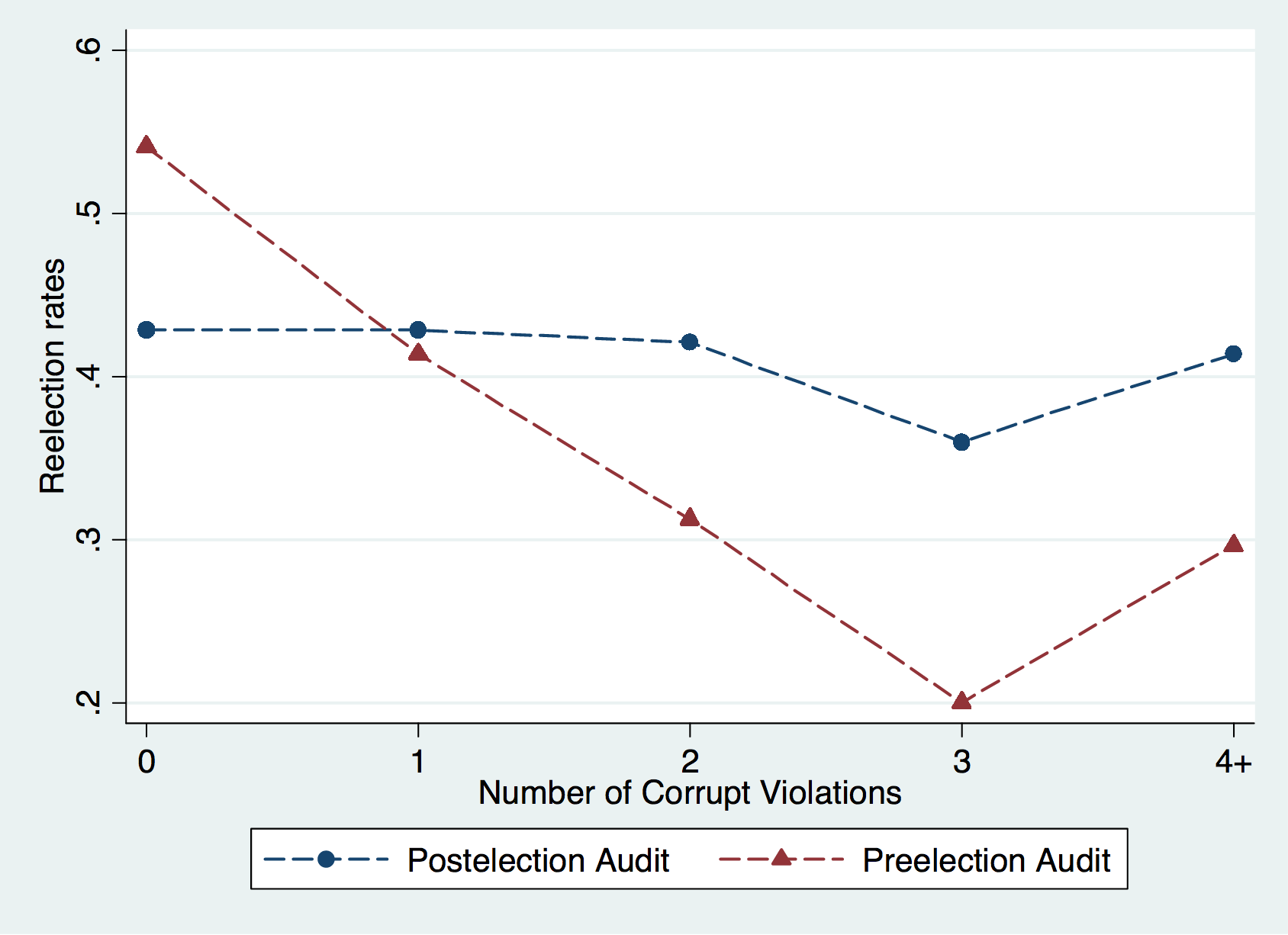
Source: Figure 3 of Ferraz and Finan (2008)
Finding
Zero corruption
Re-election
more likely

Source: Figure 3 of Ferraz and Finan (2008)
Finding
2+ violations
Re-election
less likely

Source: Figure 3 of Ferraz and Finan (2008)
Finding
1 violation
Re-election rate
does not change
Citizens expect opposition's violation to be 1
Today's Road Map

Evidence on citizens' voting behaviour
Political agency model
Evidence on politicians' behaviour
Citizens observe
incumbent's performance
before election
Better-than-expected
performance
Re-election
of incumbent
Incumbent delivers
what citizens need
Implication of Political Agency Model
to be tested
Testing ground: Brazilian mayors (again)
Each term: 4 years long
Term limit (2 terms) introduced from the 2000 election
Those re-elected in 2000 cannot seek re-election in 2004
Local govt receive 35b US dollars per year
Mayors in Brazil have large discretion over public spendings
Measurement of corruption
_____________________________________________________________
Amount of municipal govt budget audited
Amount of municipal govt budget related to corruption
Data source:
Corruption audit reports on 476 municipalities
Average: 0.79
Regression Discontinuity Design (cf. Lecture 4)
Compare mayor's corruption during 2001-2004 between
Municipalities where
incumbent barely won
in 2000
& term-limited in 2004
Municipalities where
opposition barely won
in 2000
& re-elected in 2004
Similar on average
Difference in corruption = Impact of term limit
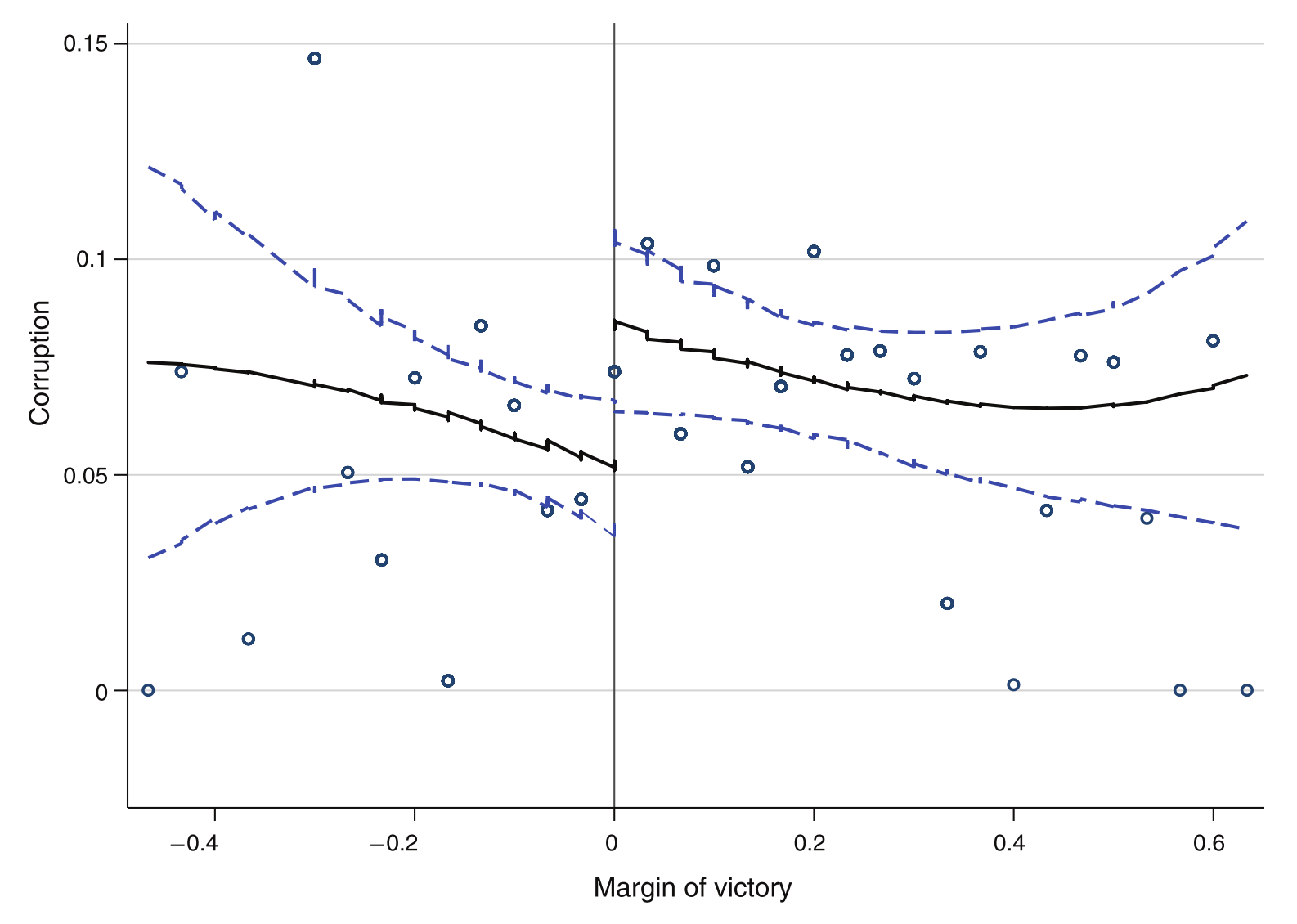
Figure 2 of Ferraz and Finan (2011)
Term limits increase corruption
0.04
Term-limited
First-term
Next lecture #1
Term limit
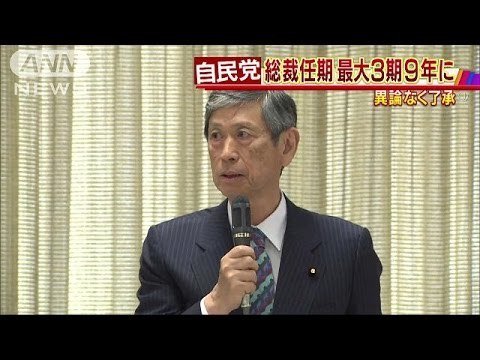
Oct 26, 2016:
LDP's presidential term limit
was extended from 6 to 9 years
Is this a good thing?
Image source: i.ytimg.com/vi/VqhZ6JgIvxc/hqdefault.jpg
Next lecture #2
Freedom of Press
Image source: rsf.org/sites/default/files/carte_en__0.jpg
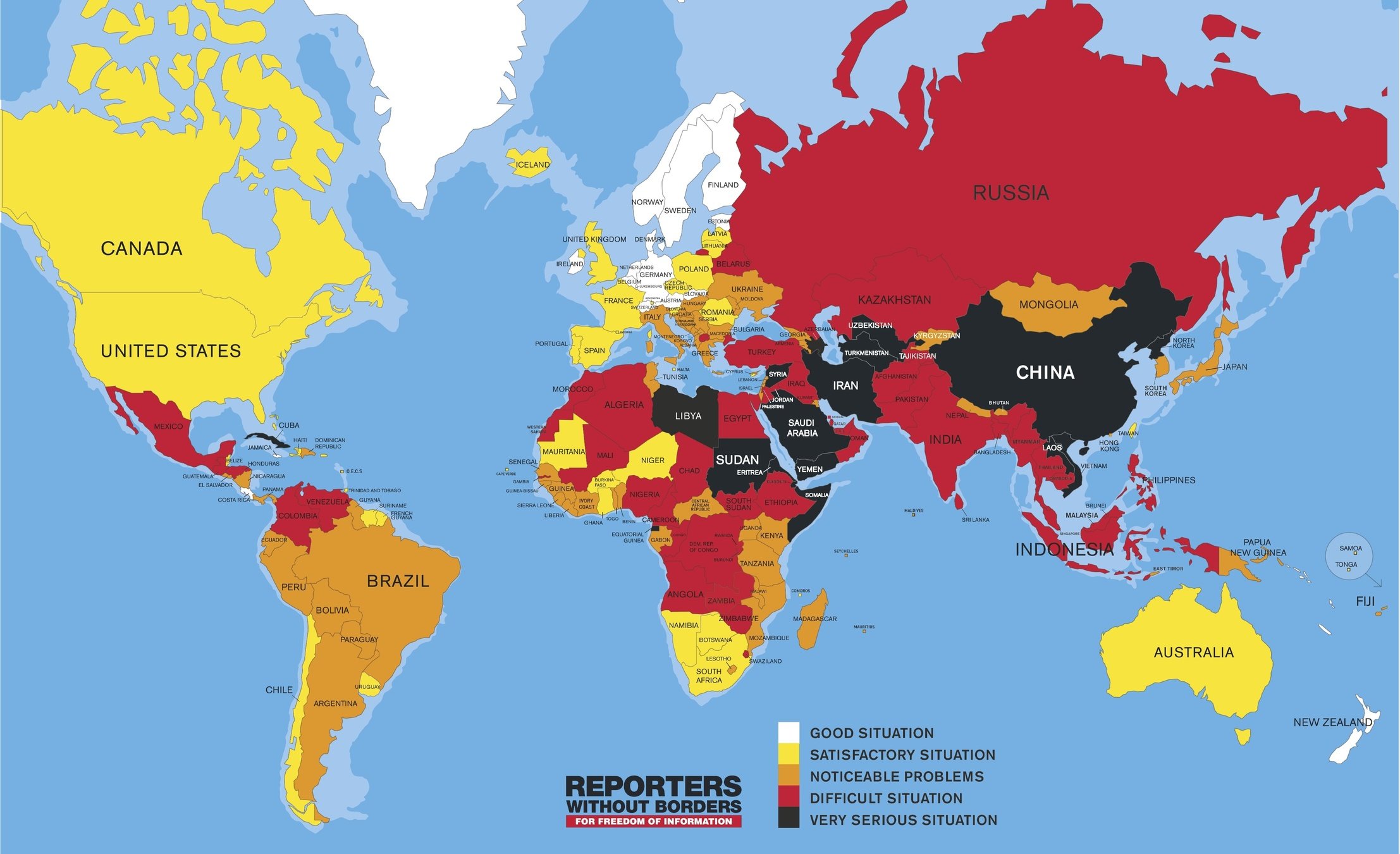
Press Freedom
across countries
in 2016
This lecture is based on the following academic articles and books:
Sections 3.3 and 3.4.3 of Besley (2006)
Political Agency Model
Evidence on citizens' voting behaviour
Evidence on politicians' behaviour
Politics through the Lens of Economics (2017): Lecture 10 Political Agency Model
By Masayuki Kudamatsu
Politics through the Lens of Economics (2017): Lecture 10 Political Agency Model
- 1,956



